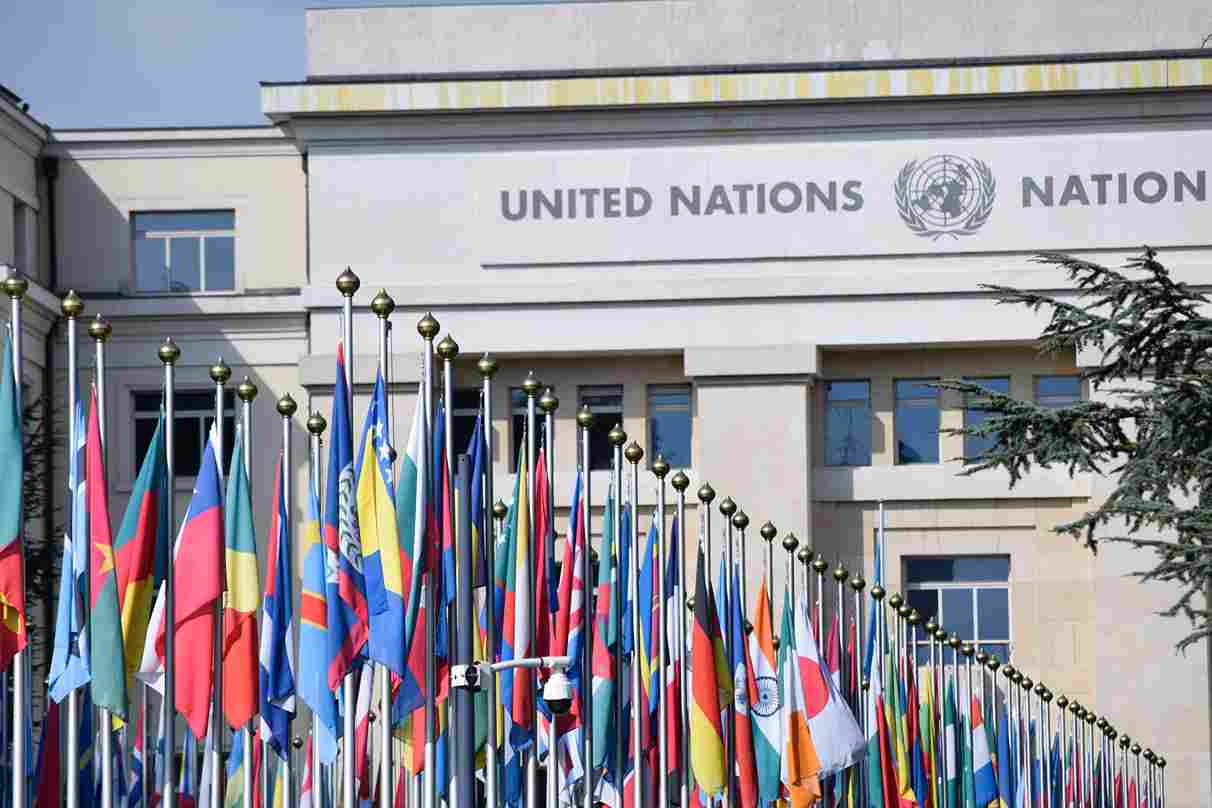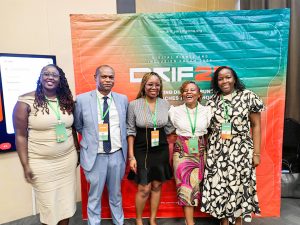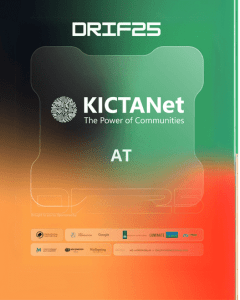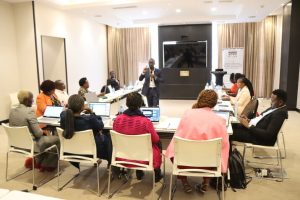By Cherie Oyier
Introduction
On 18th February 2025, Kenya’s human rights status was reviewed during the pre-session of the Universal Periodic Review (UPR) in Geneva. The UPR process is a mechanism of the Human Rights Council consisting of a periodic peer review of the human rights records of all 193 UN Member States.
It is important to note that since its inception 17 years ago, the UPR process has had 100% participation from all the 193 UN member states. Further, based on its multi stakeholder approach and peer review structure, the UPR has recorded a 287% increase in the number of recommendations member states have received from the beginning of the 1st to the end of the 3rd UPR cycle according to Mona M’Bikay, the Executive Director of the UPR Info.
Ms. Mona M’Bikay who opened the UPR pre-session emphasised the critical role CSOs and NGOs play in the UPR process. She stated that by incorporating the views and recommendations of these groups when evaluating progress made and challenges encountered in implementation of recommendations, governments avoid working in echo chambers. She emphasised that due to the criticality of their role, it is imperative that the UPR process remains a safe space for CSO and NGO actors to speak up on progress, challenges and failures in the implementation of recommendations for the common goal of improving human rights status in their respective countries. As such, the UPR Info is categorical in rejecting all forms of threats and intimidation on CSO and NGO actors participating in the process.
Kenya’s UPR Review and Recommendations
During Kenya’s pre-session review, six organisations including the Kenya National Commission on Human Rights (KNCHR), Defenders Coalition KE, Independent Medico-Legal Unit (IMLU), African Gender and Media Initiative Trust (GEM Trust), National Gay and Lesbian Human Rights Commission and the Right to Food Situation of Indigenous Peoples and Small Holder Farmers in Kenya made statements regarding the progress made towards implementing the recommendations Kenya had accepted in the 3rd UPR cycle. The organisations also highlighted the challenges that have been encountered in implementing the recommendations, key among them being limited funding and personnel to see through the actualisation of the recommendations.
Key Recommendations for Kenya During the 4th UPR Cycle
- The KNHRC highlighted the increase of monitoring, surveillance, arbitrary arrest and extra-judicial killing of civilians by the different law enforcement units in the country. While acknowledging the strides made towards enacting the Prevention of Torture Act and the National Coroners Service Act, implementation and operationalisation of both Acts of Parliament is still non-existent. The KNHRC pointed out that there is no budget allocation for the operationalisation of both Acts of Parliament as well as the fact that since its enactment in 2017, the Coroner-General’s Office has not been established contrary to section 9 of the National Coroners Service Act. These lapses in implementation and operationalization contribute to lack of accountability by law enforcement units who infringe on citizens’ rights.
- The KNHRC recommended the immediate enactment of the Persons with Disabilities Bill, 2023. This is a Bill that seeks to replace the Persons with Disabilities Act (Cap. 133) which has been in existence since June 2004. The Bill seeks to restructure the National Council for Persons with Disabilities (NCPD) and provide an institutional framework for the protection, promotion and monitoring of the rights of persons with disabilities (PWDs).
- Further, the KNHRC recommended the promotion of the right to access to healthcare services. KNHRC shed light on the challenges Kenya has faced in the transition from the National Health Insurance Fund (NHIF) to the Social Health Insurance Fund (SHIF) including the increased financial burden on Kenyans due to the higher contributions as compared to the former NHIF contributions that were voluntary.
- The Defenders Coalition highlighted the fact that during the 3rd cycle, Kenya accepted all recommendations relating to upholding the right to freedom of expression and association. However, little was done to actualise this commitment. Case in point, the failure to enact the Associations (Registration and Incorporation) Bill since 2015. At the same time, retrogressive and restrictive bills to the rights to freedom of expression and association such as the Assembly and Demonstration Bill and the Family Protection Bill have been introduced in parliament.
- In their recommendation that the Assembly and Demonstration Bill should not be passed, the Defenders Coalition, highlighted the lack of protection for human rights. They indicated that over 300,000 cases of violation of human rights defenders have been recorded in the past three years. The violations include arbitrary arrest, injury and loss of lives of protestors which has a chilling effect.
- The Independent Medico-Legal Unit IMLU addressed three main issues; police torture, extra-judicial killings and enforced disappearance. Similar to the KNHRC, IMLU noted the lack of accountability by the different security agencies due to the lack of implementation of the Prevention of Torture Act, the National Coroners Service Act and the Witness Protection Act.
- IMLU recommended strengthening the protection of victims of torture by enforcing the Witness Protection Act. With 28 people still missing after the 2024 #RejectFinanceBill protests, IMLU recommended for domestication of laws that criminalise enforced disappearance and development of a national database of persons subjected to enforced disappearance for purposes of ensuring that justice is served.
- GEM Trust which is an association of over 200 members recommended for removal of legal and structural barriers that impede access to information and services. This recommendation was anchored on the argument by GEM Trust that during the 3rd cycle of the UPR, Kenya accepted recommendations by Portugal and Malta on making sexual and reproductive health (SRH) rights available. However, the Reproductive Healthcare Bill is yet to be enacted into law despite the rising number of new HIV/AIDS infections among the youth due to incorrect information about SRH and social barriers that impede access to such information.
- GEM Trust also made recommendations specific to gender based violence. Gender-based violence of various forms have escalated with no proper interventions despite the acceptance of 28 recommendations during the 3rd UPR cycle. During the 3rd UPR cycle, Spain recommended for the setting-up of specialised courts to deal with GBV cases and for the end of GBV and female genital mutilation (FGM). However, Kenya has recorded about 100 femicide cases in 2024 alone, increased political violence, sextortion and technology facilitated gender-based violence (TFGBV) among other harms against women and gender minorities. In light of this, GEM Trust recommended for enactment of laws that specifically criminalise TFGBV, establishment of a comprehensive legal system that is comprehensive to allow survivors access justice in one place and also the establishment of safe and secure survivor centres.
- The National Gay and Lesbian Human Rights Commission made recommendations for non-discrimination on the basis of sexual orientation. They highlighted that despite Kenya accepting the recommendation by Sweden to outlaw anti-discrimination laws during the 3rd cycle, Kenya has not delivered on this. Sections 162 and 163 of the Penal Code that criminalises gay sexual acts have not been abolished. Further, they pointed out the reluctance by law enforcement to charge perpetrators of violence against gender minorities. They also highlighted that discrimination based on sexual orientation impacts access to education and gender-affirming sexual and reproductive healthcare in Kenya. They ultimately recommended the enactment of comprehensive laws on equality, repeal of sections 162 and 163 of the Penal Code and accountability of all.
- The Right to Food Situation of Indigenous Peoples and Small Holder Farmers in Kenya made recommendations for increased access to land for peasants, including indigenous and small holder farmers. They argued that the Community Land Act has not been fully implemented since 2016 hence only 11 out of a possible 2000 community land have been registered. To expedite registration, they recommended the allocation of a national budget to facilitate registration processes. Further, they recommended for inclusion of indigenous and small holder farmers in climate change decision-making discussions.
Meetings With Various Countries Representatives
KICTANet’s Dr. Grace Githaiga and Cherie Oyier were joined by Article 19 EA’s Sarah Wesonga and Hannah Machlin, from Small Media, in the meetings with the permanent missions of Estonia, Belgium, Switzerland, Japan, Spain, Denmark, Costa Rica and Germany to the United Nations in Geneva.
During these meetings in Geneva from 18th to 21st February 2025, we focused on the state of digital rights in Kenya and urged the permanent missions we engaged to include our recommendations in the final submissions their countries would be making to Kenya during the 4th UPR cycle in May. This is when Kenya’s human rights status will be reviewed. Our recommendations focused on internet shutdowns, restrictions on online freedom of expression, assembly, and association, and increasing media suppression through surveillance and arbitrary arrests.
Cherie Oyier, Programs Officer-Women’s Digital Rights, KICTANet
![]()




